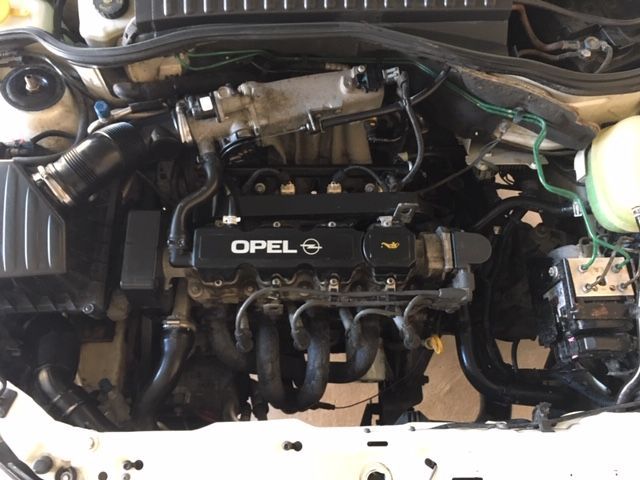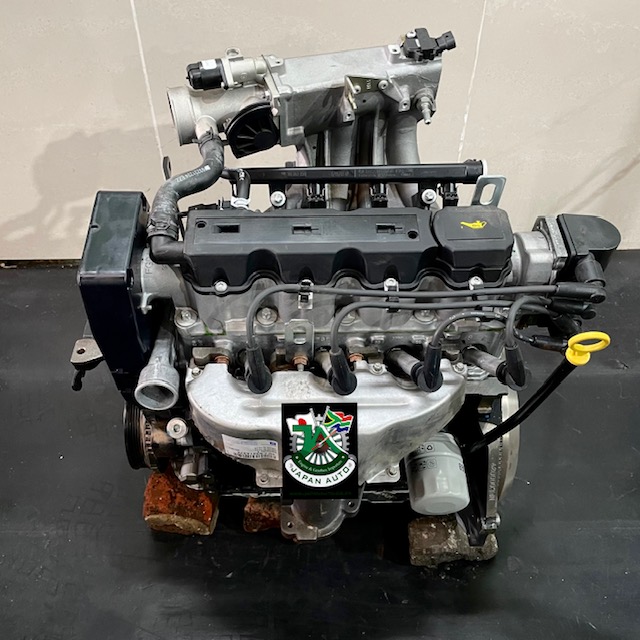Revealing Opel Corsa 1.4 Engine Price Uses: Your Resource for Costs Automobile Components
Revealing Opel Corsa 1.4 Engine Price Uses: Your Resource for Costs Automobile Components
Blog Article
Engine Purchasing Professional Tips on Choosing the Right Engine for Your Certain Demands
Picking the ideal engine for your particular needs entails a complicated interplay of variables that go beyond mere horse power figures. By diving into the intricacies of power versus performance, assessing fuel scores, and budgeting for long-term prices, one can really optimize their engine choice.
Power Vs. Efficiency: Locating the Balance
When picking an engine, it is important to strike a balance in between power and efficiency to satisfy your specific requirements efficiently. Power describes the engine's ability to generate power for propulsion, figuring out elements like velocity, towing capability, and overall performance - Opel Corsa 1.4 Engine Price. On the various other hand, efficiency connects to how well the engine uses gas to generate power, affecting variables such as fuel economic situation and environmental friendliness
Attaining the right balance in between power and efficiency is vital due to the fact that an engine that is too powerful might eat excessive fuel, bring about higher operating expense and unneeded pressure on the atmosphere. On the other hand, an engine that focuses on performance over power may result in slow efficiency, particularly sought after situations like hauling heavy tons or driving uphill.
To make an educated choice, consider factors such as your common driving problems, the designated use the lorry, and your individual choices. By evaluating your concerns and demands, you can pick an engine that strikes the perfect equilibrium in between power and effectiveness, making sure optimum efficiency while decreasing ecological influence and operating prices.
Recognizing Engine Dimension and Kind
To additionally improve the choice process of an engine that strikes the optimum equilibrium between power and performance, it is necessary to dig into the ins and outs of comprehending engine size and type. Engine size refers to the total quantity of air and fuel that can be pressed through the engine cyndrical tubes.
Furthermore, engine type plays a vital role in establishing the efficiency characteristics of an engine. Typical engine types consist of inline engines, V engines, and rotary engines, each with its special advantages and downsides. The engine type influences elements such as the engine's dimension, weight distribution, and power shipment. Understanding the interaction in between engine size and kind is vital in picking an engine that straightens with your particular demands and priorities, whether it be power, effectiveness, or an equilibrium of both.

Consider Your Car's Requirements
Considering your vehicle's demands is a fundamental action in the engine choice procedure to make sure optimal efficiency and performance. It is vital to evaluate aspects such as the intended use of the lorry, its weight, pulling ability, and fuel performance needs. If you are looking for an engine for a durable vehicle that will be utilized for towing, you will certainly require a Click This Link powerful engine with high torque abilities. On the various other hand, if you are selecting an engine for a small auto mainly utilized for city travelling, fuel efficiency might be an extra critical element to take into consideration.
Furthermore, the surface on which the lorry will largely run need to affect your engine selection. A durable engine with great climbing up power will be required if you often drive in mountainous or sloping locations. Alternatively, for level terrains, a much more fuel-efficient engine might suffice. By aligning the engine specifications with your lorry's needs, you can make sure that your automobile operates efficiently and meets your efficiency assumptions.
Reviewing Fuel Efficiency Rankings
Examining gas efficiency scores is a vital facet of selecting the best engine for your vehicle, making certain cost savings and environmental sustainability. Fuel performance ratings, typically gauged in miles per gallon (MPG) for gas engines or kilowatt-hours per 100 miles (kWh/100 miles) for electrical engines, suggest just how far a vehicle can travel on a specific amount of gas or electrical energy. Higher MPG or reduced kWh/100 miles values represent extra effective engines, converting to decreased gas costs and reduced carbon exhausts.
In addition, compare different engine options within the exact same automobile course to recognize the most affordable choice. Factors such as engine size, weight, aerodynamics, and hybrid or electric abilities can all affect gas effectiveness.
Budgeting for Long-Term Prices
Tactically planning for lasting costs is vital when selecting an engine, ensuring economic sustainability over the car's lifespan. While the first purchase price of an engine is a considerable aspect, it is important to consider the lasting expenses linked with upkeep, repairs, and gas consumption.
Furthermore, researching the accessibility and expense of substitute components for the selected engine is important in budget plan preparation. By meticulously budgeting for these lasting expenses and factoring them into the decision-making procedure, people can select an engine that not only meets their instant requirements however additionally continues to be cost-effective throughout its lifespan.
Conclusion
In final thought, choosing the best engine for your certain requirements needs stabilizing power and effectiveness, recognizing engine dimension and kind, considering your automobile's demands, examining fuel effectiveness scores, and budgeting for long-lasting costs. By thoroughly considering these elements, you can ensure that website link you choose an engine that meets your demands and gives optimum efficiency for your car.
To better improve the choice process of an engine that strikes the optimum balance between power and performance, it is necessary to dig right into the ins and outs of comprehending engine dimension and type. Engine size refers to the complete volume of air and gas that can be pushed through the engine cyndrical tubes. Common engine kinds include inline engines, V engines, and rotating engines, each with its special advantages and downsides. Comprehending the interaction between engine dimension and type is essential in choosing an engine that aligns with your certain needs and top More Help priorities, whether it be power, efficiency, or an equilibrium of both.

Report this page